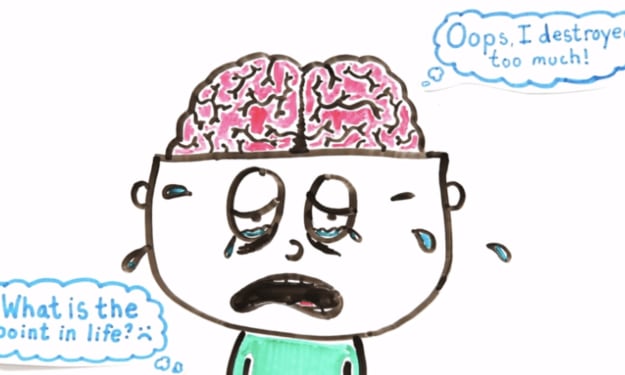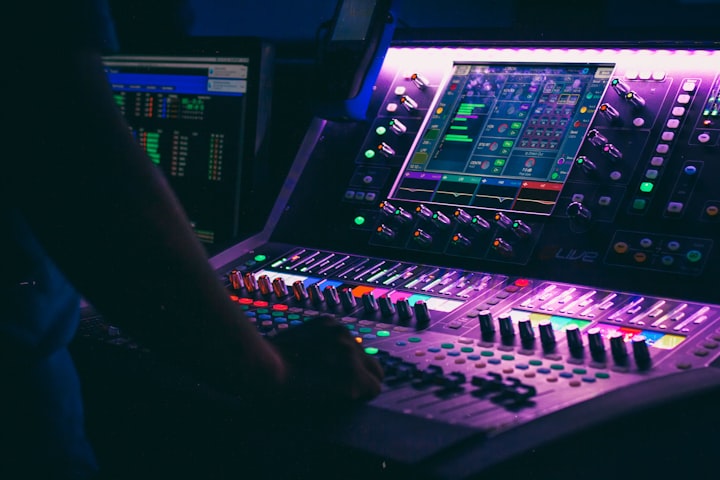How Learning How to Play an Instrument Can Strengthen Your Brain
Are you looking to better your learning abilities? Then maybe you should try learning to play an instrument. This article will teach you how playing an instrument can strethen your brain and allow you to process information and make decisions easier.

How many of you know how to play an instrument? If you do, good for you! You may be “smarter” than an average person. And do not worry if you do not play one; just pick up guitar or piano and you too will develop skills that can help everyday life become easier as well. When I was younger, my mother pushed me to be in as many different extracurricular activities as I could, one being piano lessons. Although I loved playing piano, I begged and begged my mother to let me watch TV, play on the computer, or go outside. Little did I know, learning the piano helped me develop many useful skills and habits that would later help me to become successful in my day-to-day life as a young adult. Knowing that now, I not only play the piano, but I also picked up the guitar, the ukulele, and the clarinet to better myself and my brain.
I am sure most of you have heard of Brain Age, Luminosity, and other virtual games to help strengthen your brain. Their claim states that their abundant array of mini-games will help your brain be as sharp as a knife. The way these games are able to train your brain is that they work certain parts of your brain that have to deal with memory, reading abilities, reaction time and more. Kind of like working out a muscle can make it stronger, the games in Luminosity or Brain Age are working out your brain to make it stronger. In a way, learning a new instrument trains your brain in the same way.
There are two main reasons that I will present in this speech that will provide evidence of how learning a new instrument can strengthen your brain. First of all, and this is the main advantage of learning how to play an instrument, at an early age, benefits in cognitive and spatial functions in a child’s brain show if the child is learning a how to play an instrument. Secondly, early musical training can lead to later brain plasticity, meaning the brain has an easier time adapting to new concepts and ideas. If you can listen to this whole speech, then, I promise, at the end you’ll be wanting to pick up a new instrument in hopes of training your brain to help you become even more successful than you already are.
Music has many beneficial factors. The main advantages of music, specifically learning a new instrument, would be how it can better your cognitive and spatial abilities. Cognitive abilities include reading, analytical and creative thinking, memory, and attention. Spatial abilities have to do more with understanding the environment around you, performance, and noticing patterns. Children especially need to develop skills like cognitive and spatial skills in order to be successful in the world we live in today. Learning how to play an instrument as a child could really put you ahead, in terms of brain maturity in reasoning, understanding, memory, and more. There has been research found by many researchers supporting the correlations between music instruction and strengthened cognitive/spatial skills.
One study conducted by Sarah Wilson and Margot Prior, who are researchers teaching at the University of Western Sydney, took around 701 children who were undergoing music lessons for two weeks to two years. While following these children as they learned how to play new instruments, the researchers found that cognitive abilities such as reading and memory, and spatiotemporal abilities have increased. By giving a test before and after the study, Wilson and Prior were able to see if music lessons correlated with an increased cognitive/spatial skills (Wilson). The reason to why it is a correlation and not a causation is due to the factors that these children also had a high socioeconomic status and come from a strong familial attitude family. This means that there is also a relationship between high cognitive and spatial skills in people who come from a high social class and strick families, suggesting that music instruction is not the sole reason to why these children who participated in the study showed higher scores in cognitive and spatial reasoning tests. Although this is true about the correlations, there are more studies supporting the claim that cognitive and spatial abilities increase in a child’s brain when learning an instrument.
There is another article that I found that talks about how music ability relates to reading ability and verbal memory and that having a strong background in music can provide a good base to become a well-rounded, successful individual. The results stated by Dr. Kraus that, “music and reading are related via common neural and cognitive mechanisms—suggests a mechanism for the improvements in literacy seen with musical training," gives another example that music lessons have a positive influence on cognitive abilities. Dr. Kraus discusses that those able to recognize notes and having the ability to read music have higher scores in reading ability, short-term memory, and word recognition. The participants who had good rhythm would have better time understanding patterns and math problems.
All in all, the way learning an instrument could improve certain abilities in your brain is through specific tasks repeated over and over again, training your brain to think in a certain way. Therefore improving spatial and cognitive skills through music.
Another benefit to learning how to play an instrument for children and in adults is that it increases brain plasticity. This means that music instruction improves a person’s ability to accept and learn new information. As we get older, our brain tends to decrease in plasticity and we have a hard time grasping and understanding new concepts. Learning how to play a new instrument can lessen the decrease in plasticity.
There are two articles that I looked at regarding brain plasticity and music instruction. The first one I looked at stated, “Learning to play an instrument is a highly complex task that involves the interaction of several modalities and higher-order cognitive functions and that results in behavioral, structural, and functional changes on time scales ranging from days to years” (Herholz). This article basically states that when a person learns how to play a new instrument, different functions in the brain are at work and leads to positive development in behavior, adaptations, and functioning in the person’s brain.
The second article surrounding brain plasticity and music instruction also supports this claim. The article states that playing an instrument requires an intense use of a range of sensorimotor skills. They present an example about playing music, which allows the person to recognize and get used to different visual patterns, training their brain to pick up different visual patterns in their life. Again this example and multiple others provide an enhancement in cognitive abilities, all thanks to learning how to play a new instrument.
In conclusion, learning how to play a new instrument strengthens your brain cognitively and spatially. There are certain skills you develop while playing instruments, such as reading ability, recognizing patterns, memory, attention, etc. In developing these certain skills, you can increase your brain’s plasticity and overall ability to process information to help you become a successful adult in this hard world we live in. I guarantee you that no matter what instrument you pick up, it will help life be much easier to work through. Learning how to play a new instrument will not only make you smarter than the average person but will also help life be much easier to work through.
I hope this proves to be valuable information for you. Good luck learning your new instrument!
About the Creator
Danyea Hays
Hello readers, my name is Danyea Hays and I am a psychology graduate. You can find many psychology articles and personal essays on my page. How you enjoy :)






Comments
There are no comments for this story
Be the first to respond and start the conversation.